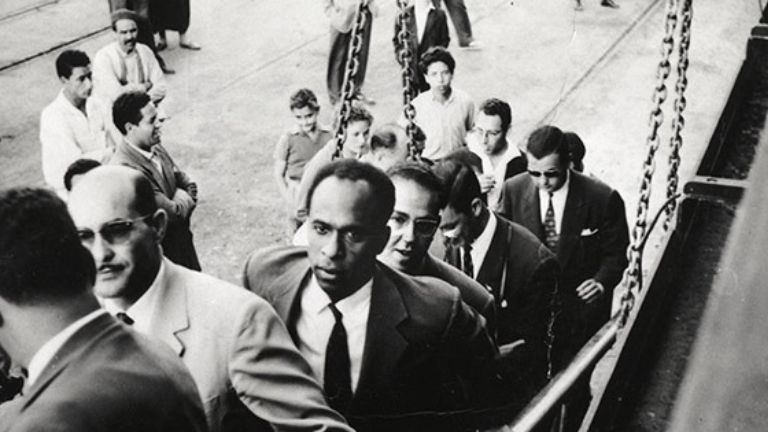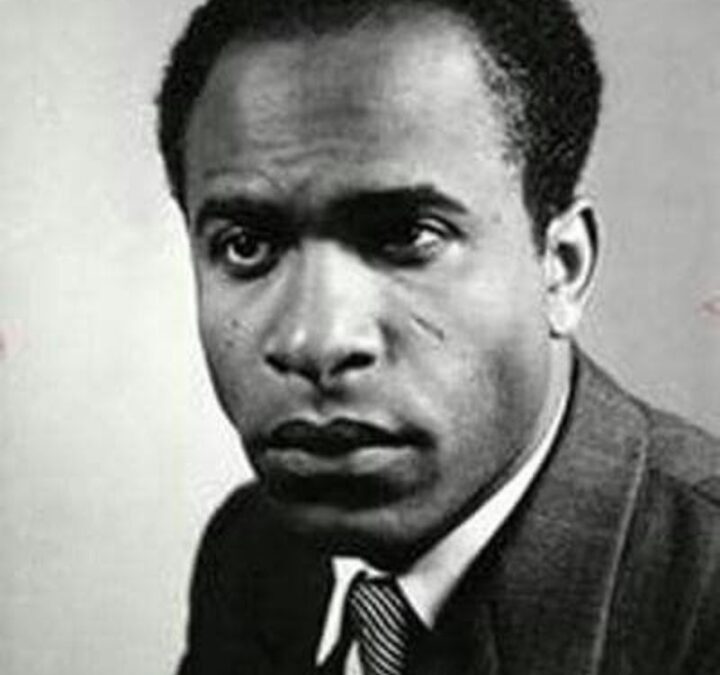Introduction
Frantz Fanon was an intellectual, psychoanalyst and political activist who was born in Martinique in 1925 and died at the age of 36 in 1961. He is consideredone of the greatest decolonization thinkers of the 20th century and is famous for his writings on the struggle against colonialism, racism and oppression. In this article, we will examine the life and work of Frantz Fanon, focusing on his ideas and their impact on political and social thought.

The life of Frantz Fanon
Frantz Fanon was born in Martinique in 1925. He grew up in a well-to-do family and received a fine European education. Despite this, however, he was always confronted with racism and oppression because of his skin color. In 1943, he went to France to study medicine, where he also joined the Free French Forces and fought in the Second World War.
After the war, Fanon continued his studies in psychiatry and worked in Algeria, then a French colony, where he was confronted with violence and oppression against Algerians. This had a profound impact on him and led him to commit himself to the struggle against colonialism and oppression.
Fanon began writing about decolonization and the struggle against oppression in the 1950s. His first book, « Peau noire, masques blancs », published in 1952, is an analysis of how racism and colonization impact the psyche of people of color. He also wrote about the experience of colonial violence in Algeria in his 1961 book, « Les damnés de la terre ».
Fanon died of leukemia in 1961, aged 36. However, his influence and legacy have continued to be felt in the decolonization and anti-oppression movements around the world.

Frantz Fanon’s work
Fanon is best known for his writings on decolonization, racism and oppression. His work has had a considerable influence on political and social thought, particularly in the decolonization and anti-oppression movements.
Black skin, white masks
His first book, « Peau noire, masques blancs », is an analysis of how racism and colonization impact the psyche of people of color. In it, Fanon explores the experience of alienation that black people feel as a result of racism and colonization, as well as the psychological effects of discrimination.
In this book, Fanon also explores the effects of colonization on language and culture. He argues that colonization has the effect of devaluing the culture and language of the colonized, preventing them from developing fully as individuals.
The damned of the earth
« Les damnés de la terre » is without doubt Fanon’s best-known work. In it, he explores the psychological and social consequences of colonial violence in Algeria, as well as ways of resisting colonial oppression. In it, Fanon describes colonial violence as a form of mental torture that leads to profound alienation and loss of identity among the colonized.
Fanon argues that colonial violence must be fought by all necessary means, including armed violence, to overthrow the colonial order and establish a just society. He also criticizes nationalist movements, which tend to reproduce colonial power structures in their own societies, rather than creating genuine liberation.
The importance of psychology in the fight against oppression
A recurring theme in Fanon’s work is the importance of psychology in the struggle against oppression. He studied psychiatry and psychoanalysis, and used these disciplines to explore the effects of oppression on the human psyche.
Fanon wrote about the importance of understanding the psychological traumas caused by colonization and colonial violence, and the need to heal these traumas in order to liberate the oppressed. He stressed the importance of solidarity and empathy in the struggle against oppression, and encouraged liberation movements to take into account the psychological dimension of the liberation struggle
.

Fanon’s legacy
Fanon’s legacy is considerable. His writings have had a considerable influence on decolonization and anti-oppression movements around the world, and have inspired generations of activists.
Fanon has also influenced thinkers and movements beyond the realm of the struggle against colonization. His ideas have inspired movements for social justice, the fight against racism and discrimination, and the promotion of human dignity.
Conclusion
Frantz Fanon was an important and influential thinker of the 20th century. His writings on decolonization, racism and oppression have had a considerable impact on political and social thought, particularly in anti-oppression movements.
Fanon highlighted the importance of understanding the psychological effects of oppression, as well as the importance of solidarity and empathy in the struggle against oppression. His legacy lives on today, and his ideas continue to inspire movements for social justice and liberation around the world.
5 quotes from Frantz Fanon
1 – « Every generation, no doubt, believes itself destined to remake the world. My generation knows that it will not. But its task is perhaps greater. It is to prevent the world from coming undone. »
2 – « Every time an individual opens his mouth to denounce injustice, or acts to improve the life of a community, he is expressing a humanity struggling against barbarism. »
3 – « Until we put in place an education that teaches us to think, we will continue to be slaves. »
4 – « Colonialism is not a thinking machine, is not a body endowed with reason. It is violence in the state of nature and can only bow to greater violence. »
5 – « Every society has the criminal it deserves. The criminal is not only the fruit of the social environment, he is also the product of a certain individual weakness or cowardice. »










